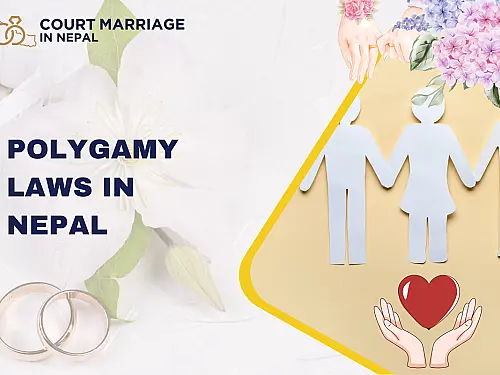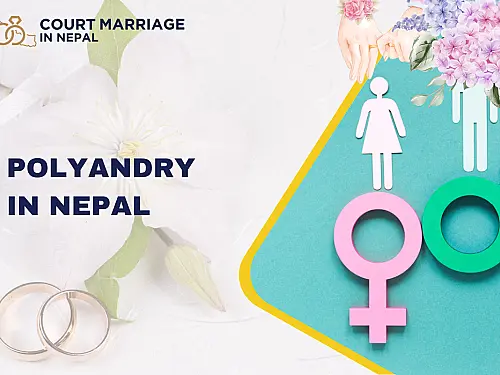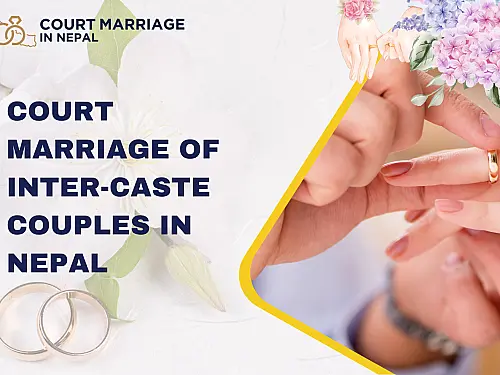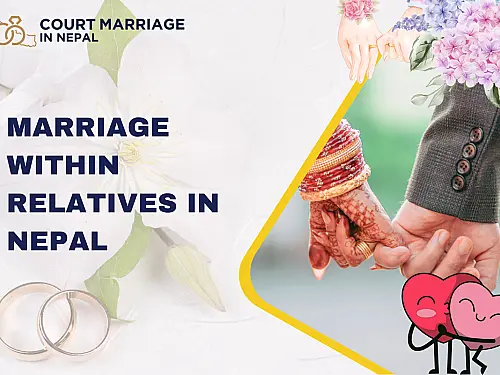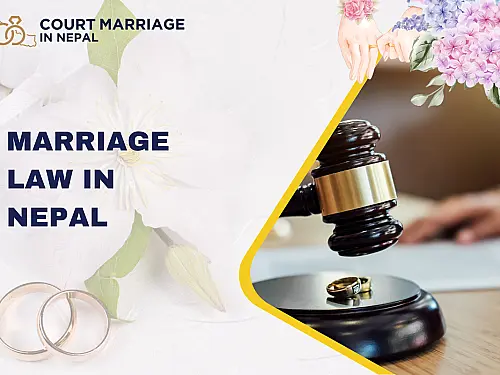Table of Contents
Court marriage in Nepal is a legal procedure where two people officially establish their partnership in the presence of the court. In contrast to traditional weddings based on cultural or religious traditions, court marriage offers a simpler and formal means for couples wanting to legally register their partnership. The procedure takes place at the District Court, where the couple appears with several necessary documents and witnesses. It emphasizes mutual agreement and legal transparency over rituals, providing a practical choice for individuals who appreciate simplicity or encounter social or familial limitations. Regardless of whether it's an inter-caste, inter-religious, or cross-national union, court marriage provides an impartial environment that acknowledges love and partnership free from discrimination or social influence. It is particularly attractive to young couples seeking to define their partnership through equality, respect, and legal acknowledgment instead of traditional expectations.
What gives court marriage its significance is the feeling of dignity and security it provides to each person involved. It is more than a legal act it represents a commitment that recognizes individual choice and independence. The marriage certificate provided by the court transforms into more than just a document, it represents mutual responsibility and serves as protection of rights. This document is significant in everyday life, whether for visa applications, property management, opening joint accounts, or making healthcare choices for one another.
For numerous individuals, court marriage signifies more than mere convenience, it embodies principles of openness, equity, and reverence for the legal system. In a society that is slowly moving toward more inclusive and progressive values, court marriage stands as a strong reminder that love doesn't have to adhere to tradition to be legitimate, and that every couple is entitled to the freedom to shape their own journey together on equal and legal grounds.
Legal Framework For Court Marriage in Nepal
Court marriages in Nepal function according to the National Civil Code 2017 (2074 BS), which acts as the main legal framework for governing marriages, covering their registration, processes, and legal legitimacy. This code explicitly outlines the official procedures to be adhered to, the paperwork to be provided, and the eligibility criteria for individuals wishing to marry through a judicial process. It guarantees that the marriage is founded on voluntary choice, legal ability, and mutual agreement of both individuals, offering an organized and clear system for couples seeking to formalize their union legally.
The District Court primarily manages the registration of court marriages, where couples submit their applications with supporting documents and attend in person for verification. Under specific conditions, especially for Nepali citizens residing overseas, the procedure may also be conducted via the Ward Office (for domestic registrations) or a Nepalese Embassy or Consulate (for international matters). This legal framework provides flexibility while preserving the authenticity and legality of the marriage procedure. Through the standardization of the registration process, the National Civil Code 2017 grants legal acknowledgment to marriages while also protecting the rights and duties of both partners.
Main Characteristics Of Court Marriage in Nepal
Legal and secular procedure
A significant feature of court marriage in Nepal is that it is a legal and secular procedure, indicating it excludes any religious or cultural ceremonies. This is particularly advantageous for couples from varying castes, religions, or even nationalities, who might encounter difficulties in marrying through traditional ceremonies. It’s also a popular choice for individuals who desire a simple, tranquil, and officially acknowledged union without the stress or expense of a large wedding.
Legal acknowledgment
A further major advantage is legal acknowledgment. After the court marriage is finalized, it is formally recognized by the Nepali legal system. This indicates that the couple receives all the privileges and safeguards associated with legal marriage including the ability to jointly own property, inheritance rights, and access to social and governmental benefits as a married couple.
Documentation
The procedure also involves the issuance of a marriage certificate, a significant legal document. This certificate serves as evidence of the marriage and is frequently required when applying for items like a passport, visa, bank account, or when dealing with family and legal decisions.
In summary, court marriage not only streamlines the marriage process but also guarantees that the couple's rights are completely safeguarded by the law.
Criteria for Eligibility for Court Marriage in Nepal
In order to marry legally in Nepal through the court, certain essential conditions must be fulfilled by both parties. These guidelines exist to guarantee that the marriage is entered into with complete comprehension, voluntary consent, and legal accountability. Every one of these criteria aims to safeguard the rights and welfare of both partners, ensuring the marriage is equitable, legitimate, and legally acknowledged.
Both parties must be at least 20 years old
To start, both persons need to be a minimum of 20 years old. This age stipulation signifies the viewpoint that marriage is a significant commitment necessitating both emotional and legal maturity. It guarantees that both individuals are mature enough to make this significant decision independently and responsibly.
Consent
Furthermore, the union should be founded on voluntary agreement. This signifies that both parties should consent to the marriage voluntarily, without any pressure, threats, or coercion. Consent is fundamental in any authentic relationship, and the law protects the right to choose willingly.
Both parties must be mentally stable, indicating they need to comprehend what marriage entails its obligations, responsibilities, and legal consequences. This safeguards individuals from being exploited or entering a marriage they do not fully understand.
Should be legally unmarried
Another crucial rule is that both individuals must be legally unmarried when the marriage takes place. This indicates that they must not be currently married to another person. Nepali law prohibits polygamy, meaning individuals who are already married can only enter into a new marriage if they have obtained a divorce or are widowed.
Close blood relations
The law additionally prohibits marriages among closely related blood relatives. This aims to prevent health hazards in future generations and to uphold ethical family limits. The precise definitions of forbidden relationships are specified in legal language, but typically, immediate family members such as siblings or first cousins are not allowed to marry one another.
Legal residency in Nepal
Furthermore, at least one individual in the couple should either be a Nepali citizen or possess legal residency status in Nepal. This guarantees that the marriage is recorded under Nepalese law and permits the court to supervise the legal proceedings.
Physically present in court
Ultimately, both parties need to be physically present when registering the marriage. Proxy marriages, in which one individual is represented by another, are not permitted. The attendance of both parties guarantees that they are providing their consent face-to-face and that the procedure is entirely open and legal.
These standards are not intended to complicate marriage, but instead to safeguard individuals, preserve the honor of marriage, and guarantee that each partnership is approached with sincerity, awareness, and mutual regard.
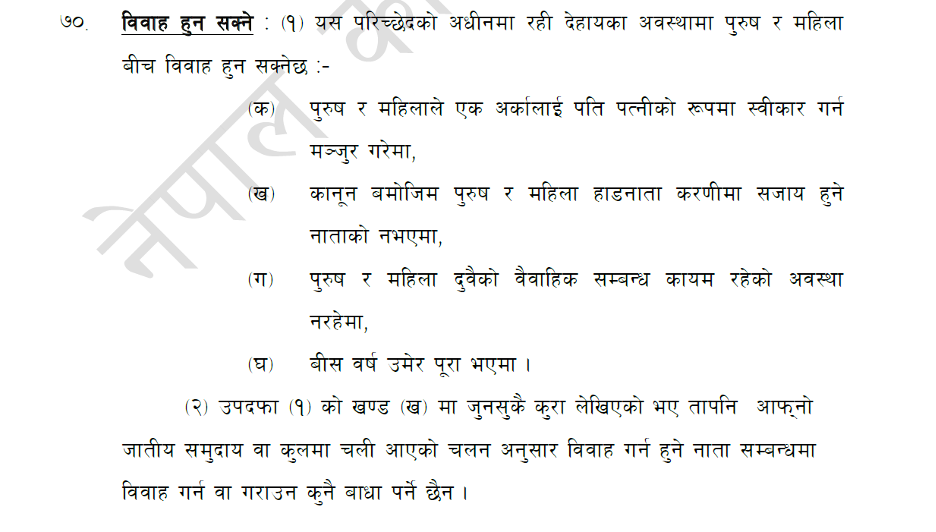
Pic: Civil Code, 2074
Registration Process Overview for Court Marriage in Nepal
Getting married legally in a court in Nepal is a straightforward and organized procedure that guarantees transparency and legal recognition. Though it may appear somewhat formal in comparison to a traditional wedding, it's actually very simple once you grasp each part.
Submitting an application
The procedure starts with submitting an application. Both parties intending to marry are required to go to the District Court together and submit a joint application. In addition to this, they are required to submit the necessary document like citizenship certificates, passport-size photographs, and a statement confirming that they fulfill all the legal requirements for marriage. This stage resembles the formal declaration of their desire to wed legally.

Verification of documents
After the application is submitted, the court proceeds to verify the documents. In this instance, the court's officer reviews all the submitted documents to ensure that everything is correct and thorough. They further affirm that both persons are legally qualified to wed indicating they satisfy the age criteria, are not currently married, and are entering into marriage willingly.

Attendance of witnesses
The subsequent step requires the attendance of witnesses. Every individual getting married needs to have a minimum of one witness someone familiar with them who can confirm their identity and their intention to wed. This provides an additional layer of trustworthiness and confidence to the procedure. All parties involved and their witnesses are required to appear in person at the court, which promotes honesty and transparency throughout the process.

Court proceeding
Subsequently, the couple takes part in a court proceeding. In this brief hearing, a judge examines the case, verifies that all legal criteria have been fulfilled, and affirms that both parties are entering the marriage voluntarily and without coercion. If everything is proper, the judge grants official consent for the marriage.
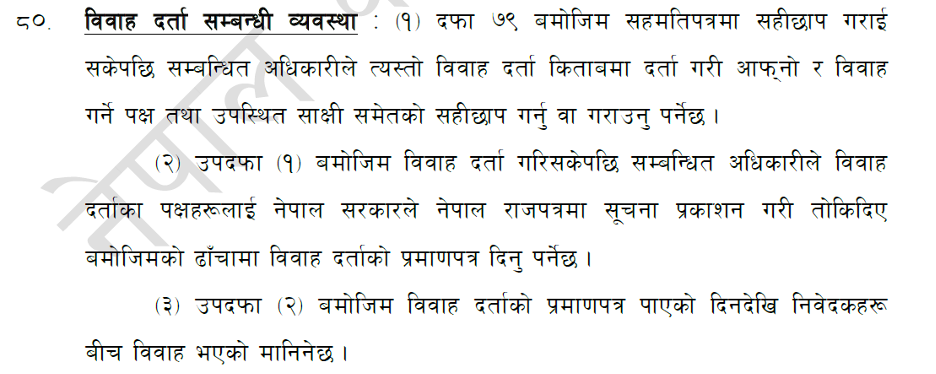
Benefits of Court Marriage In Nepal
Efficiency and affordability
A key benefit of court marriage in Nepal is its efficiency and affordability. In contrast to traditional weddings that often feature sizable crowds, intricate ceremonies, and high costs, court marriage is straightforward and direct. Parties need not to stress over reserving locations, organizing ceremonies, or spending on decorations and banquets. Instead, they can concentrate on what truly counts establishing a lifelong pledge to one another in a legally endorsed manner. This is particularly beneficial for young couples or individuals who desire a peaceful, cost-effective beginning to their married life.
Neutral and inclusive nature
An additional significant advantage is its unbiased and inclusive character. Court marriage is not associated with any religion, caste, or cultural practice, making it perfect for couples from diverse backgrounds be it inter-caste, interfaith, or from various nations. It offers a respectful and impartial environment where love and shared consent are what genuinely count. There’s no obligation to adhere to traditions that may not align with the couple, allowing them the liberty to define their relationship on their own terms.
Legal protection
Ultimately, court marriage provides robust legal protection. Upon registration, the marriage is completely acknowledged by the Nepali legal framework, signifying that both partners enjoy distinct rights and protections. This encompasses rights associated with property ownership, inheritance, choices in medical or legal issues, and simplified documentation for aspects like visas and international travel. During periods of uncertainty or legal conflicts, a court-registered marriage guarantees that both parties are safeguarded by the law. It offers a sense of reassurance, realizing that the relationship is not just emotionally significant but also legally protected.
Conclusion
In Nepal, court marriage offers a contemporary and practical method for couples to legitimize their relationship with legal protection. It serves as a legally protected and inclusive option to traditional marriage ceremonies, eliminating the obstacles of caste, religion, or cultural norms. By emphasizing mutual agreement and legal acknowledgment, it enables individuals to make a personal and equitable decision regarding their relationship.
Regardless of whether the couple is Nepali, international, or from various backgrounds, court marriage provides a straightforward, respectful, and effective route to formal union. It is particularly attractive to individuals who prioritize simplicity, clarity, and legal safeguards in their shared experience. In a society that is slowly accepting change and equality, court marriage signifies more than a legal connection; it is a significant move toward a fairer and more inclusive future.
Frequently Asked Questions
At Court Marriage In Nepal, a registered law firm operating as Court Marriage In Nepal Pvt. Ltd., we specialize exclusively in Court Marriage Nepal. As the first law firm in Nepal dedicated to court marriage services, we assist both Nepali citizens and foreign nationals with the court marriage registration process in Nepal, including complete legal support for court marriage registration for foreign citizens in Nepal. As a trusted marriage firm in Nepal and a licensed law firm in Nepal, we ensure a smooth, lawful, and stress-free experience. Contact us today for confidential assistance with court marriage registration in Nepal.


